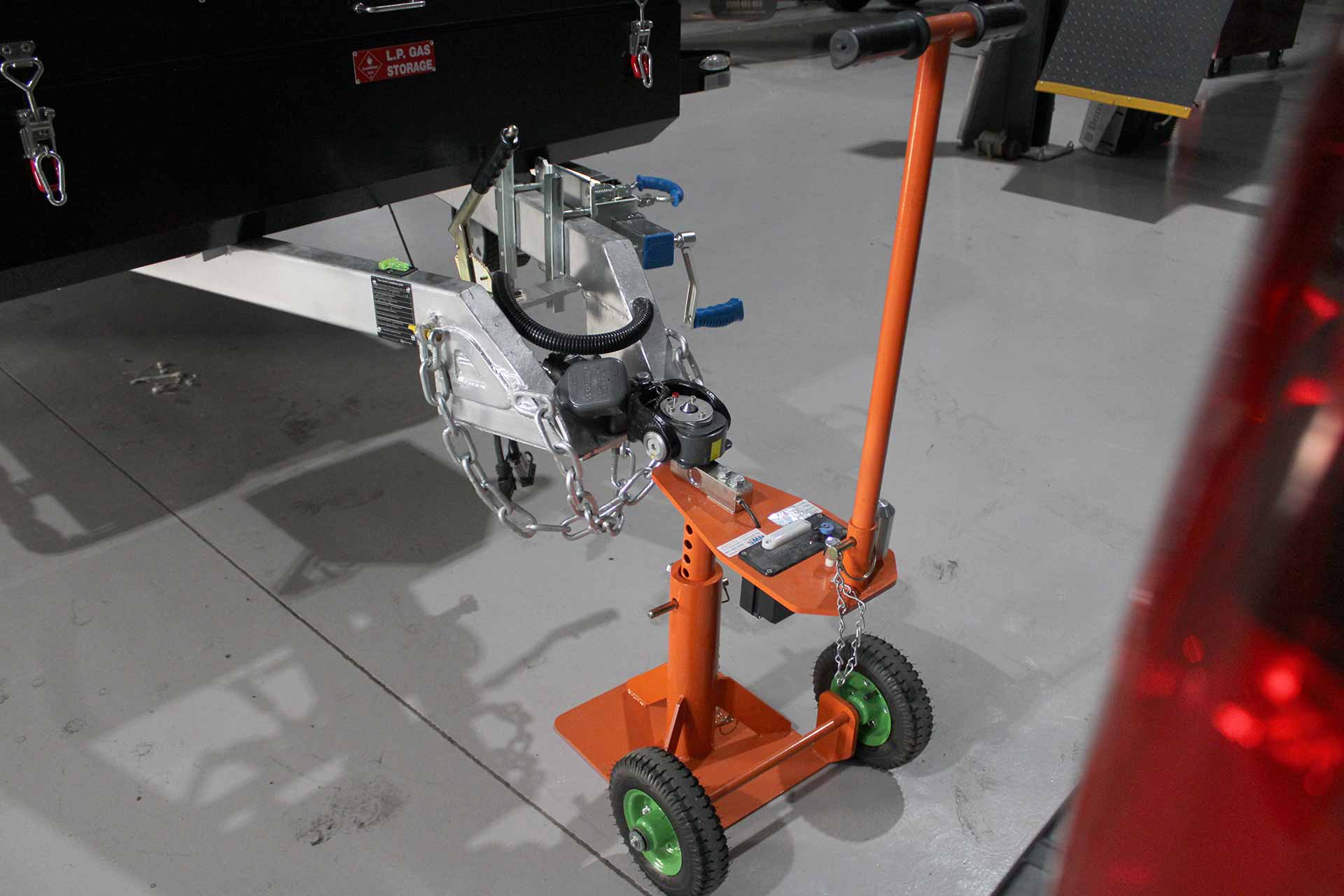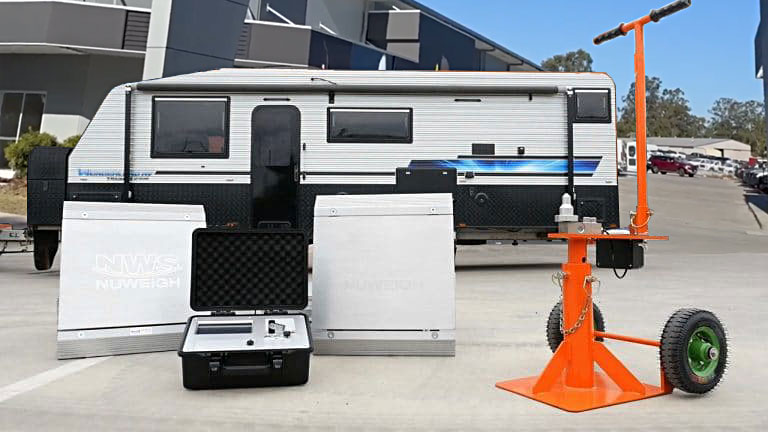Caravan and Vehicle Weighing
Caravanning is a great way to holiday and see Australia, enjoying the comforts of your own accommodation is the best, but have you made thorough preparation to travel on our roads. We wish it was as easy as purchasing a 4WD, a caravan and hitting the road however, there is essential information you need to check and follow first.

RACQ estimates that more than 70% of caravans on our road are overweight. This can mean that you may not be covered by your insurance if you have an accident and cause extra wear and tear on your vehicle. An unbalanced caravan can also lead to unstable towing, poor braking performance and poor steering.
Our Weigh Station is able to identify the weights of various light road vehicles whether it is a caravan, camper trailer, boat, car or trailer we have a portable, robust and complete wireless system to check a vehicles (GVM) (GTM) (GCM) Tare or Tow ball weight. With eight weighing pads our options are 2 or 4 axle configurations plus the car can be included also.
If it sounds too overwhelming, come and see our experienced staff and we will help you out.
WEIGHTS - Everything you need to know
Maximum Braked Towing Limit: The maximum braked towing limit is the upper limit of what your car can pull if the caravan has its own braking system
Maximum Unbraked Towing Limit: This is the maximum towing limit your vehicle can tow if the trailer / caravan does not have a braking system. Most 4WD cars can tow up to 750kg, but newer models and electric vehicles have lower limits or can’t tow an unbraked trailer or caravan at all.
Gross Combination Mass (GCM): The Gross Combination Mass or GCM is the maximum total combined weight of the vehicle – its load, passengers, luggage and the total loaded weight of the caravan it is towing. The car’s manufacturer specifies the weight limit and you can’t go over it.
Gross Vehicle Mass (GVM): The Gross Vehicle Mass or GVM is the maximum allowed weight of the vehicle, defined by the manufacturer. This includes the passengers, luggage, fuel and the weight on the tow ball. After loading your vehicle can’t pass the Gross Vehicle Mass. However, there are some modifications you can make to your vehicles suspension to increase the GVM. But keep in mind that a raised GVM won’t increase the towing capacity, the Gross Combination Mass or the maximum braked towing limit. By increasing the vehicles Gross Vehicle Mass you need to compromise on your caravan weight in order to remain within your Gross Combination Mass (GCM).
Tow Ball Download: Also known as ball load, hitch weight or towball weight, this is the weight the caravan applies at its hitch. The vehicle manufacturer clearly states the vehicles towball mass weight limit, while the towball download in caravans is declared but not legally backed up. How, what and where you load your caravan affects the ball load weight.
Kerb Weight: The kerb weight is exactly what the name tells you – the weight of the unloaded vehicle, including only the cars fluids and a full tank of fuel sitting on the kerb.
Tare Weight: Tare weight is the weight of an empty caravan or car with only the essential fluids and a small amount of fuel. It is also known as dry weight. The tare weight includes the appliances and features provided in your caravan but does not include any added luggage or water in the tanks. The manufacturer provides the tare weight info.
Load Capacity Maximum: As you can see, the difference between the kerb weight and the GVM is the load. The load capacity is the maximum weight of passengers, luggage, appliances and features you can add to your caravan. These can be spare tyres, backup batteries, tools, bike racks etc.
Aggregate Trailer Mass (ATM): Cars have GVM, but caravans have Aggregate Trailer Mass. It specifies the maximum caravan weight limit and the highest weight that the caravan can safely carry when packed.
Maximum Axle Weights: The axle weight is measured as the mass on each axle when weighed independently.




